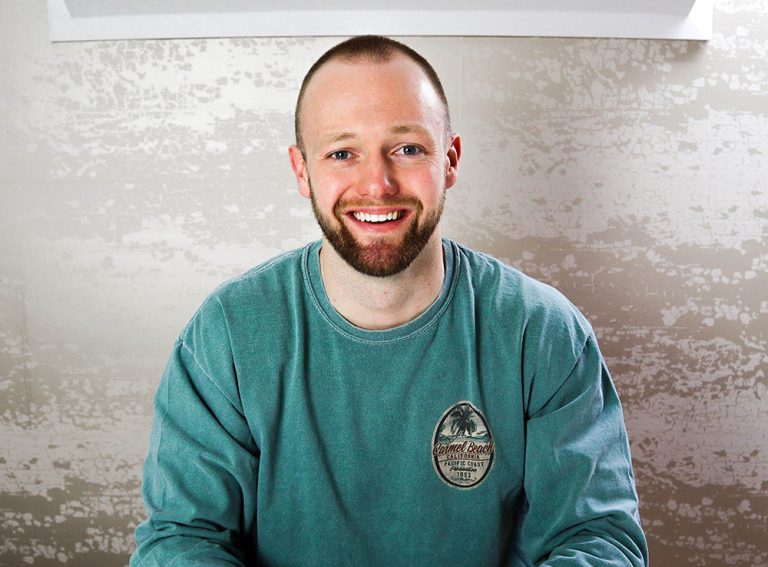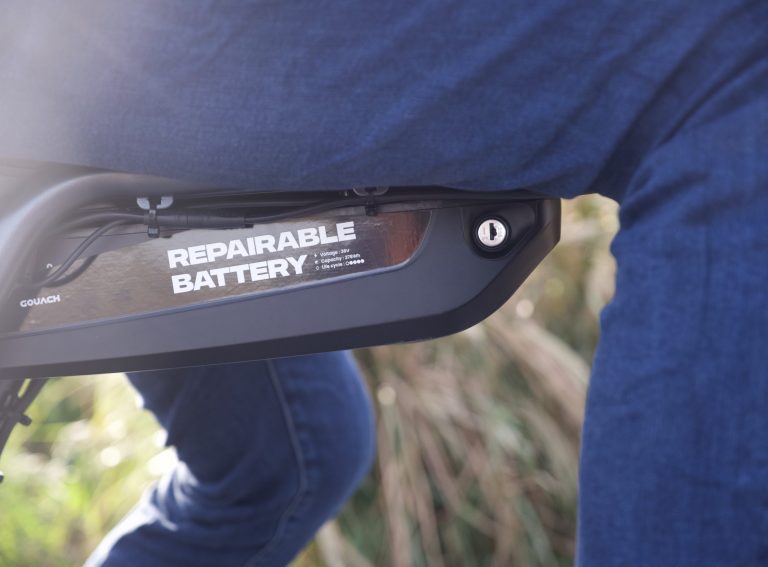Swiftmile CEO Colin Roche spoke to Zag Daily to discuss the charging station provider’s recent link-up with German parking operator APCOA.
The San Francisco-based firm has a presence in the US and Europe, with the APCOA partnership allowing Swiftmile to offer its charging services to parking garages in Stuttgart.
This move followed its agreement with Shell earlier this year, which resulted in the installation of Recharge micromobility hubs at retail stations and garages throughout Berlin.
Roche discussed how these partnerships help the wider micromobility sector, while also looking at the future of the industry and some of the exciting developments that are ongoing.
Zag Daily: Tell us more about this new partnership with APCOA.
CR: “Two years ago we were fortunate to become partners with BVG, which acts as Berlin’s transport authority. We had met them a couple of times, and they said they would come out and visit us in the Bay Area. Following that, we ended up putting out the world’s first micromobility charging station at one of their subway stops, which happened to be at an APCOA parking lot that was partnered with BVG, and that is what first put us on the radar.
“At that early stage, I do not think that APCOA had major plans to repurpose some of their parking areas, but as we progressed and started to refine our model and supply chain and began to scale in the US, it came together in a really great way. They have launched different services such as hosting Amazon lockers, so when APCOA started to offer micromobility services it brought together e-scooter operators TIER and then Shell, which is a partner of ours. So, we have started out here in Stuttgart and are looking to expand over the coming year.”
Zag Daily: What locations are you looking at for potential expansion?
CR: “I think what we are seeing now in this post-COVID-19 period, is that there are a lot of different groups that are looking at ways to provide a different set of mobility options. If you look at Europe, where Germany in particular is one of the strongest micromobility markets on the planet, and cities like Berlin, Stuttgart, Frankfurt, they are a natural fit for us to grow into. Our whole company is based on strong partnerships and so we tend to leverage those partnerships as part of that expansion.
“With APCOA, they have 11,000 different parking areas out there, and Shell has gas stations. So, our stations will be available at both APCOA and Shell locations, with TIER as one of the first operator partners. We also have other operators that we are speaking with that could be part of this network in the future. One of the big benefits to the micromobility operator is that charging all these devices is expensive. The operators normally have to pay people to drive around to pick them up, so it just makes more sense to have these vehicles charged in the field. That way, these mobility hubs can provide continuity to the community so they know they can always find a charged vehicle ready for the next journey.”
Zag Daily: How can this partnership with TIER benefit Swiftmile?
CR: “This whole ecosystem that is evolving is only really three years old and there is no one that can do it all on their own. We can do pieces of it but doing it all on your own is a big challenge. This is not too different from the auto industry when it first took off – Ford made cars and then Standard Oil came out with the first gas stations. So, we see that e-scooter operators are just a piece of the puzzle. We want them to work with us and provide their vehicles into our system of mobility hubs that we have placed in all these key areas to help drive ridership and get more people out of cars.”
Zag Daily: Do you see the partnership with Shell as a sign of how important micromobility is becoming?
CR: “Most of the major auto manufacturers have announced that they will stop making gas-fueled cars by 2030, and you can see the growth of just the EV charging world. Chargepoint just went public, Volta just went public, and these firms are all based on providing that network for the vehicles themselves. Now I am not saying that it is going to happen overnight, but micromobility is a really easy way to provide a lot of bang for your buck for short-distance travel. So, it just makes sense that Shell would want to be a part of the sector because most of their business is centred on providing fuel to move people and goods.”
Zag Daily: How can partnerships between different stakeholders within micromobility improve the experience for users?
CR: “I will give an example: In the US we are working with the Miami Parking Authority in different areas of the city and there are a number of other cities that are coming online. But one thing we have learned is it’s very polarising. Half the people love it, and half the people hate it. Those that resist it cite reasons like the devices blocking sidewalks or people riding on sidewalks or going too fast. These things are fixable, but when micromobility first blew up, no one knew what the pros and cons were. Now though, our mobility hubs really give a home for these vehicles and incentivize riders to ride to the stations where it is more likely this vehicle is going to be charged and safely stored for the next user. I think cities are really starting to grasp that and it really creates some continuity for the public. It happened in the past when someone needs an e-scooter, but they cannot find one or the ones available are not charged, but our hubs really help mitigate that.
“One way we work with cities is by asking for access to a good location and power, then we will install our system for free and our digital screens on which we can put transit schedules along with ads. This allows us to offer free services to the cities and also provide useful information and emergency alerts for citizens. This has really proven to be a good model because it takes away the friction points between us, the operators and the cities.”
Zag Daily: Do you have any plans to expand into the UK and Ireland where e-scooters are not yet legalised?
CR: “In Ireland, they are allowing e-scooters in certain areas now and it looks like they are going to pass legislation to make them legal in the not-too-distant future. My family is from Ireland so I have a strong connection there and there is a partnership we have lined up that should be announced soon. In the UK, we have existing partnerships and some that we are working on, but the ultimate goal is to become the partner for cities and operators that acts as a useful piece of the puzzle. Swiftmile wants to improve the micromobility ecosystem for everyone.”
Zag Daily: Do you have any plans beyond shared e-scooter services?
CR: “We are not just locked into e-scooters and have a partnership with an e-bike firm in the US already. In addition, we have partnered with some last-mile delivery companies that have repurposed their parking garages into ghost kitchens. REEF is a good example, and many of their delivery staff are using e-scooters and e-bikes to make their deliveries. We have one station in Miami where we went to observe how they worked, and every single delivery driver went and plugged in their device after using it. There were no incentives in place, but they were all reliant on the vehicles being charged to do their job. Those kinds of partnerships are really exciting, and are something Swiftmile hopes to do at scale in the US, but also in Europe and Asia.”





